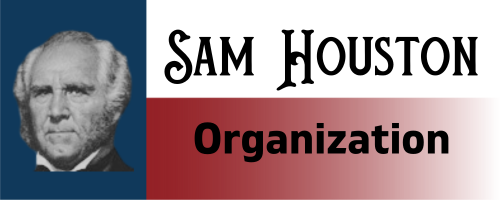A Complicated Political Relationship
The Know Nothing movement, also known as the American Party, was a nativist political movement that gained traction in the mid-19th century. It was characterized by its anti-immigrant and anti-Catholic sentiments, advocating for stricter immigration laws and favoring native-born Americans in politics and employment. The movement derived its name from its secretive nature, as members were instructed to respond to inquiries about their activities by saying, “I know nothing.”
During his career, Sam Houston had a complicated relationship with the Know Nothing movement. Houston, a staunch Unionist, often clashed with the movement’s anti-immigrant and anti-Catholic views. He believed in maintaining national unity and promoting religious tolerance, which clashed with the Know Nothings’ exclusionary policies.
In the 1850s, when the Know Nothings gained prominence, Houston found himself caught in the crossfire of their political agenda. As the governor of Texas from 1859 to 1861, Houston faced pressure from both sides of the issue. He had to balance the interests of the Know Nothings, who were gaining popularity in the state, with his own principles of unity and inclusivity.
Houston’s position on the Know Nothings became especially crucial during the 1860 presidential election. The Know Nothings nominated their candidate, former president Millard Fillmore, who was known for his anti-immigrant stance. However, Houston, still a prominent figure in Texas politics, refused to support Fillmore or the Know Nothings. Instead, he endorsed the Constitutional Union Party candidate, John Bell, whose platform was focused on preserving the Union.
Houston’s stance on the Know Nothings and his endorsement of Bell caused a significant rift within the Democratic Party. Many Democrats in Texas were sympathetic to the Know Nothings, leading to Houston’s removal as governor in March 1861 after he refused to take an oath of allegiance to the Confederacy. The Know Nothings played a part in his political downfall, as they had considerable influence in Texas at the time.
Despite his disagreements with the Know Nothings, Houston’s legacy is not defined solely by this aspect of his career. He is primarily remembered for his role in Texas’s fight for independence from Mexico and for his leadership as the president of the Republic of Texas. Houston’s efforts to secure Texas’s admission to the United States and his contributions to the state’s development as a senator also remain significant parts of his legacy.
In conclusion, Sam Houston’s involvement with the Know Nothings reflects the complexities of his political career. While he clashed with the movement’s nativist ideals, Houston’s commitment to unity and his refusal to support their candidate underscored his dedication to preserving the Union. Despite the controversy surrounding his stance on the Know Nothings, Houston’s contributions to Texas and his unwavering principles continue to be an integral part of his historical legacy.
